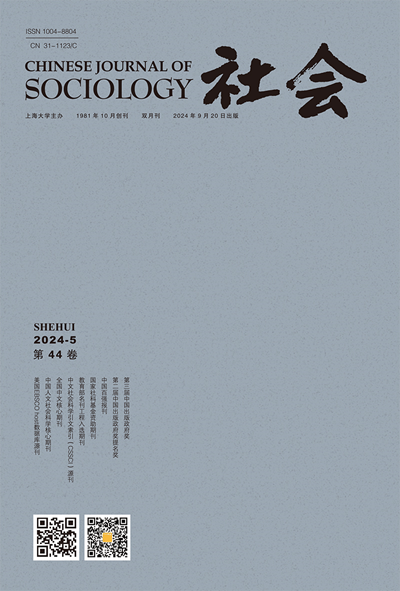The paradox of technical governance: A public opinion survey’s political process and its results
IF 1.8
4区 社会学
Q2 SOCIOLOGY
引用次数: 0
Abstract
The logic of technical governance goes as follows: the knowledge of society can be obtained by the state via technology, and thus social problems are identified and solutions are found. Questions have been raised about whether technical governance would ever work. For many the answer is negative and doubtful. However, one defense remains: technical governance fails not because the idea is inherently flawed but because the technology is not good. Would technical governance succeed with better methodology and more technical rigor? In order to challenge this defense, this paper examines the operation of opinion polls—a form of technical governance supported by rigorous quantitative social research methodology—run by a sub-district government in the city ‘S’. In particular, this paper asks whether it is possible for a government-run poll to reflect manipulated public opinion, despite the strictest compliance with quantitative polling methodology. The finding of this paper gives an affirmative answer. It argues that on the surface, polls are statistical surveys, but in actuality they are a political process controlled by the government despite their compliance with all statistical requirements. The power structure of the local government determines the questionnaire items, their multiple-choice answers (the screening, compressing, and quantifying of social scenarios), and the final make-up of the public opinion index. The rigorousness of methodology does not guarantee the authenticity of ‘public opinion’ in final poll figures. More likely, the outcome is controlled by those who organize polls. Hence, quantifiable technical governance presents a contradiction: the state manufactures biased public opinions precisely when it is looking for unbiased public opinions. In the end, the government constructs an image of society that is its own reflection.技术治理的悖论:民意调查的政治过程及其结果
技术治理的逻辑是:国家可以通过技术获取社会知识,从而识别社会问题并找到解决方案。人们对技术治理是否可行提出了疑问。对许多人来说,答案是否定和怀疑的。然而,有一种辩护仍然存在:技术治理失败并不是因为这个想法本身就有缺陷,而是因为技术不好。如果有更好的方法论和更严格的技术,技术治理会成功吗?为了挑战这一辩护,本文考察了S市一个街道政府进行的民意调查的运作情况。民意调查是一种由严格的定量社会研究方法支持的技术治理形式。特别是,本文询问,尽管最严格地遵守了定量民意调查方法,但政府运营的民意调查是否有可能反映被操纵的民意。本文的发现给出了肯定的答案。它认为,从表面上看,民意调查是统计调查,但实际上,尽管它们符合所有统计要求,但它们是由政府控制的政治过程。地方政府的权力结构决定了问卷项目、他们的多项选择答案(对社会场景的筛选、压缩和量化),以及民意指数的最终构成。方法的严格性并不能保证最终民调数据中“民意”的真实性。更有可能的是,投票结果由组织投票的人控制。因此,可量化的技术治理呈现出一种矛盾:国家恰恰在寻求公正的公众意见时制造了有偏见的公众意见。最终,政府构建了一个反映自身的社会形象。
本文章由计算机程序翻译,如有差异,请以英文原文为准。
求助全文
约1分钟内获得全文
求助全文
来源期刊

社会
Social Sciences-Social Sciences (all)
CiteScore
1.70
自引率
0.00%
发文量
6799
期刊介绍:
The Chinese Journal of Sociology is a peer reviewed, international journal with the following standards: 1. The purpose of the Journal is to publish (in the English language) articles, reviews and scholarly comment which have been judged worthy of publication by appropriate specialists and accepted by the University on studies relating to sociology. 2. The Journal will be international in the sense that it will seek, wherever possible, to publish material from authors with an international reputation and articles that are of interest to an international audience. 3. In pursuit of the above the journal shall: (i) draw on and include high quality work from the international community . The Journal shall include work representing the major areas of interest in sociology. (ii) avoid bias in favour of the interests of particular schools or directions of research or particular political or narrow disciplinary objectives to the exclusion of others; (iii) ensure that articles are written in a terminology and style which makes them intelligible, not merely within the context of a particular discipline or abstract mode, but across the domain of relevant disciplines.
 求助内容:
求助内容: 应助结果提醒方式:
应助结果提醒方式:


